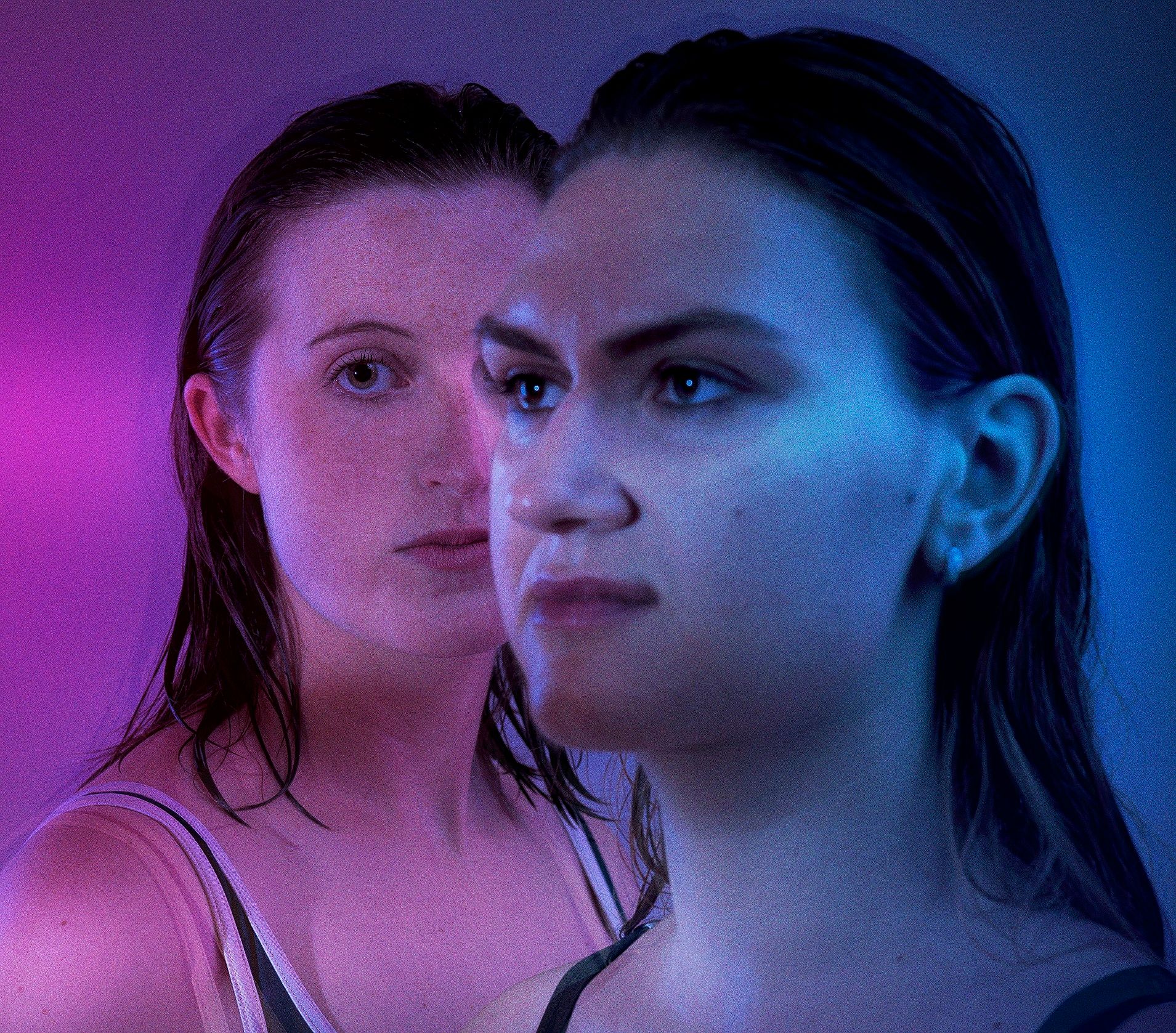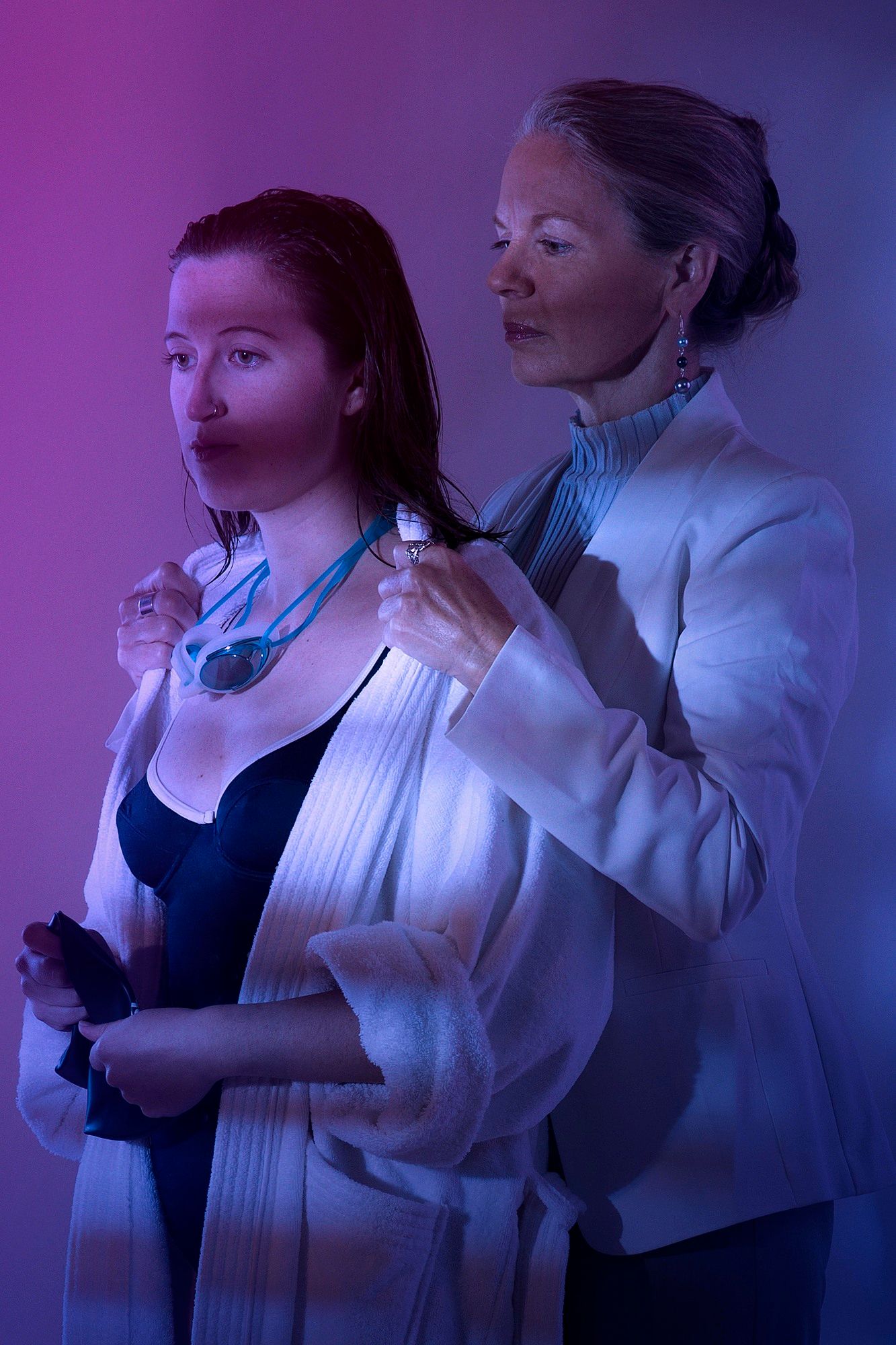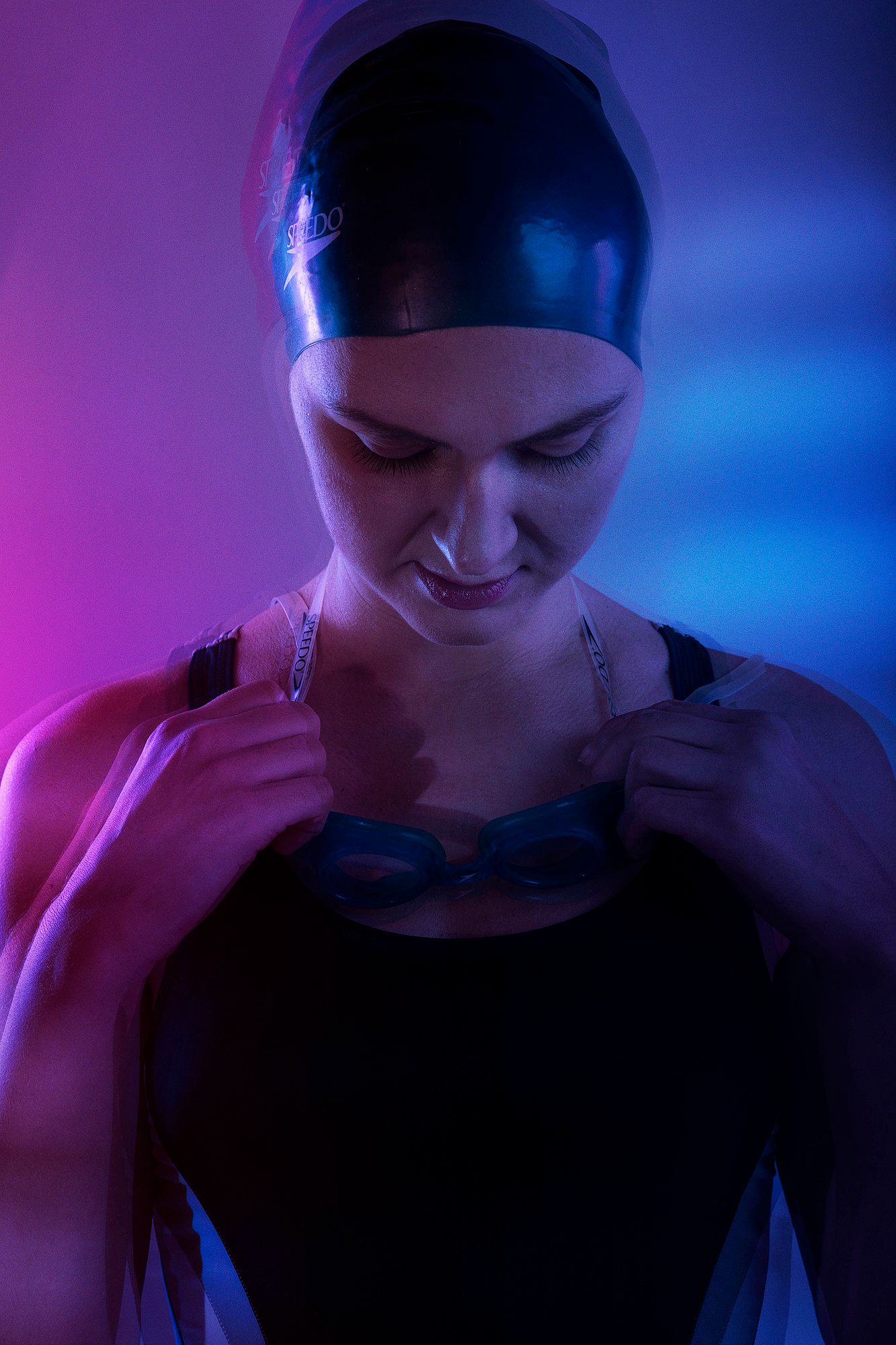Tepid Bath: A Review of The Swimmer
Adam Goodall reviews The Swimmer, a high-strung psychodrama from seasoned Chilean writer-director Manuel Saez.
Adam Goodall reviews The Swimmer, a high-strung psychodrama from seasoned Chilean writer-director Manuel Saez.
“Have you seen fish in the aquarium?” one swimmer asks another. Her voice is flat; her eyes, dead. She stares out into the audience. “Have you seen fish in the sea? Do you know the difference?”
Her name is Tabatha. She keeps telling Anna, the other swimmer, her lover, about how fish in the aquarium know the way out but never take it. They choose to eat each other instead of breaking free. It’s grim, unsettling, a story of mindless mutual violence told totally dispassionately so as to scare Anna into action. It’s an almost Lynchian moment, these normal people struggling with their desires, their commitments and the uneasy gulf between the two. Unfortunately, it’s one of only a few of those moments in The Swimmer, written and directed by Chilean ex-pat Manuel Saez, that actually reaches for that kind of effect.
Part Carrie and part Swimfan, The Swimmer digs into the psyches of two young swimmers in love and the stage mom myopically forcing them apart. Anna and Tabatha meet at the pool by chance and fall in love with each other by design. Anna’s mother – a woman so pathological and so deep into projecting her own desires onto her daughter that she’s even passed on her name – is furious. Anna’s got a competition coming up, a competition she’s apparently sworn she’d win for her mother’s sake, and nothing can get in the way.
There’s nothing especially novel in this set-up, but Saez’s presentation suggests an off-kilter noir-laced psychological thriller. The set is dissected into blocks of black and gunmetal grey and lit aggressively by hard polygonal spots facing straight down. High-pitched synths blink and drone under the drama. When Anna and Tabatha connect at a nightclub, Tabatha’s sleek black jacket is hit with dense red light; sharp, otherworldly bursts of near-white are refracted off the jacket through the haze. All indications point to the story happening in the here and now, but it’s made abstract and strange when played against Saez and his co-designer Camila Fernandez's vaguely futurist Black Lodge – a space less Single White Female, more Gattaca.
Saez clearly knows his way around an image. His script is scattered with them, too, beautiful fragments about aquariums or compositions. Which makes it doubly, triply frustrating that when given the option, Saez and his performers so often fall back on the literal, the trite and the brutally repetitive.
There’s no sense of mystery or surprise: we know where each character stands from the start and they don’t move from those positions all play.
Saez’s script reliably cycles between three scenes. There’s the monologue in which a character explicitly states their backstory, emotions and intentions. There’s the scene in which Tabatha implores Anna to stop worrying about her suffocating mother and seize their love. And there’s the scene in which Anna and her mother skirmish over any suggestion that Anna might have a life outside her mother’s dreams. This rehashing might sound reductive, but it’s not. The beats in each new scene are so similar and there’s next to no forward momentum; we get the same proclamations and the same arguments and every transition hits the reset button.
There’s no sense of mystery or surprise, either: we know where each character stands from the start and they don’t move from those positions all play. From the jump, we know that Anna’s not her mother’s “little girl anymore” and that Anna’s mother has an unwavering desire to see her daughter succeed where she failed and that Tabatha is desperate for Anna to act on her desires. We know all of this because Saez is constantly telling us this, these expressions of intent standing in for any action. They take up so much time and space that they are the play; too often, The Swimmer is three people yelling at each other that they’ll do something until they do it.
As Anna, Meron McCardle doesn’t let up with the yelling. There’s no sense of love or even lust driving her, even in scenes with Tabatha. She tilts her head and tightens her hand in a claw and shouts from the throat, her voice hoarse with anger. Like her co-performers, Kassie Mcluskie (as her mother) and Anastasia Dolinina (as Tabatha), McCardle’s performance is a symptom of being directed to the biggest and most obvious emotion for any given line. When so much of the script is built around people failing to live up to each other’s values and getting into arguments over that, then, the end result is that the performers are left little room to create any shade. Anna is never tender with Tabatha, nor vice versa; Anna’s mother swings between furious judgment and crazed manipulation; Tabatha yells when she’s angry or when she’s determined with no way to differentiate between them. There’s nowhere for their vocal performances to go. They’re already at 100.
The Swimmer has moments where it’s pushing towards a unique, surreal expression of how we can become imprisoned by the expectations of others and how difficult it can be to achieve liberation. It has those moments and they’re weird and exciting and refreshing to watch. It’s a grind to get to them, though, and it shouldn’t be. This story has so much more potential than people standing in a room, yelling at each other.
The Swimmer runs from 8 to 12 August at BATS Theatre.
Tickets available here.



